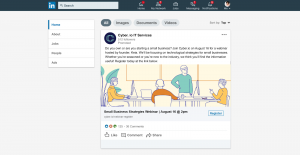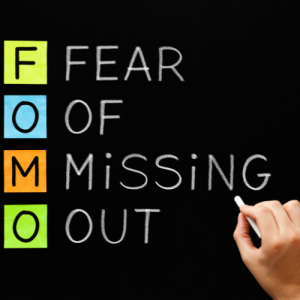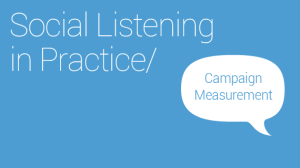How to be a better manager to Gen Z
Gen Z workers are often misunderstood. However, there are steps you can take to better understand, and support, Gen Z.
People who were born between 1997 and 2012, otherwise known as the members of Gen Z, are expected to make up more than a quarter of the workforce by 2025. Moreover, teen employment recently reached a 14-year high. As the number of Gen Zers entering the workforce climbs by the day, the conversation has been dominated by how to acclimate these passionate individuals into an ever-changing workplace. And yet, when we talk about Gen Z, they continue to be misunderstood and underestimated.
Gen Z is one of the most driven generations yet. They are, according to research, the most entrepreneurial and socially conscious generation. Members of Gen Z understand the importance of diversity, equity, and inclusion, and they are the first generation to prioritize mental health and wellness. They vote in droves when it comes to sustainability and climate change, and they will be the first generation to write their college applications or cover letters with advanced technology like generative AI.
But unfortunately, members of Gen Z are often misunderstood when they show up at work. The question is: are members of Gen Z difficult to work with or are managers under-equipped to manage them? Here’s how leaders can work better with Gen Z.
Understand Gen Z
The first thing to understand about Gen Z is that they’re a social-first generation. Gen Z has come of age with social media in a way that the generations who are managing them have never experienced. Gen Z came of age on the internet. They are the first generation that has had platforms to express themselves and their thoughts openly among their peers. This is a contrast from how Baby Boomers and Gen X navigated society, and even in some cases with millennials—who didn’t experience the first social media platforms until they were in college or older.
In part because of this experience, members of Gen Z are comfortable voicing their opinions. Gen Z is used to putting every thought out for others to like, dislike, and amplify. When they show up at work, they expect their voice and opinions to be heard and taken into consideration. Concepts such as protecting your mental health and avoiding burnout have always existed, but older generations didn’t have the same dedicated language in decades past, nor did they have such wide-reaching platforms to advocate for themselves.
A final thing to understand about Gen Z is that they were the first Zoomers. Gen Z is the first generation to finish college and join the workforce completely online due to the COVID-19 pandemic. Previous generations never had to onboard a job and figure out how to be a professional from their homes. But many organizations haven’t provided some of the fundamental skills that Gen Z needs to take on the increased responsibility and ownership they desire.
Want to be part of the solution? Here are four ways managers can better support Gen Z in the workplace and meet them where they are.
How managers can support Gen Z
The first thing leaders can do to support Gen Z is lean into collaboration and belonging during the onboarding process. Gen Z is one of the most social generations yet, and until recently, has been unable to connect with all of their peers because of the pandemic. To help Gen Z succeed, prioritize onboarding and growth opportunities that lean toward social experiences that foster connection and belonging. Involve teammates in the process and implement networking programs for them to connect and collaborate.
Another thing managers can do is to use social media as a learning tool. This generation is obsessed with learning and growth. Unsurprisingly, 40% of Gen Zers prefer using social media as a search tool for advice. Managers should look to utilize social media instead of webinars, long online modules, and once-a-year classroom training. Opt for smaller, bite-sized learning opportunities that Gen Z workers can embed into their flow of work to make learning on-the-job skills more digestible.
Third, be sure to encourage employees to find time for mental health and wellness. For Gen Z, mental and physical health is paramount. However, some organizations frown upon leveraging earned time off and that overworking is considered the culturally accepted norm. To combat this, create an environment for employees to explore flexibility with how they use their time off. You may even want to offer extended holidays or company-wide time off to foster a culture centered on employee wellness.
Finally, engage in two-way mentorship. One of the most important exercises to practice is two-way mentorship. Two-way mentorship is similar to reverse mentorship but with the opportunity for both sides to learn and grow. Senior members have the opportunity to provide skills, onboarding, guidance, and counsel to someone newer in the workforce, and they could also learn a great deal from someone from the younger generation. This practice can help equip managers with actionable insights to better coach and connect one-on-one with Gen Zers.
So many leaders are being asked to design the future of work. Designing anything that’s future-oriented without including the inputs of members of Gen Z will miss the mark. By examining the age-old rules of the workplace, managers can meet the needs of Gen Z and inspire Gen Z to love where they work.

Amelia Dunlop is the chief experience officer for Deloitte Digital, where she helps companies develop winning experience strategies that combine innovation, creativity, and digital transformation. Author of Elevating the Human Experience and co-author of The Four Factors of Trust, both national bestsellers, Amelia writes and speaks regularly about human experience, trust, creativity, and customer strategy.
(15)
Report Post







